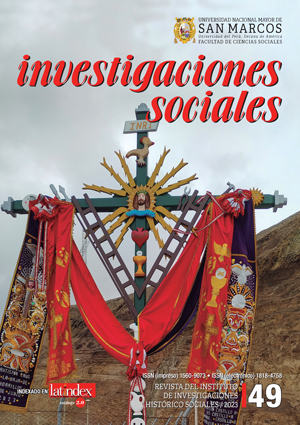Resignifying the role of ascending power. China’s (re)emergence and changes in the contemporary international system
DOI:
https://doi.org/10.15381/is.n49.28156Keywords:
China, ascent, international relations, globalization, international systemAbstract
This article aims to examine the rise of China as a world power, and interpret the impact it represents for the contemporary international system. It is generally held that China intends a change it, here we argue that these changes only suit its needs as ascent power and vindicate its long history. Both needs feed off each other, shaping revisionism different from the one that a rising power could project. China’s incorporation into Westphalian system through the force meant the adoption of European principles for its development in the international arena. Industrial development as well as State’s consolidation was necessary for China’s modernization and the consequent rise as a leading power. The interpretation that the Asian giant poses a radical change in the international system does not suit its interests. Dual identity and moral realism are important elements to understand how she interprets herself and what her aspirations are on a global level. Therefore, in this line, the approach of moral realism proposed by the Chinese academic Yan Xuetong, as a theoretical framework, allows us to explain from the Chinese concepts the role that the Asian giant would consider assuming in the international concert.
Downloads
Published
Issue
Section
License
Copyright (c) 2023 Gonzalo Ghiggino, Carlos Juárez Centeno

This work is licensed under a Creative Commons Attribution 4.0 International License.
AUTHORS RETAIN THEIR RIGHTS:
a. Authors retain their trade mark rights and patent, and also on any process or procedure described in the article.
b. Authors retain their right to share, copy, distribute, perform and publicly communicate their article (eg, to place their article in an institutional repository or publish it in a book), with an acknowledgment of its initial publication in Investigaciones Sociales.
c. Authors retain theirs right to make a subsequent publication of their work, to use the article or any part thereof (eg a compilation of his papers, lecture notes, thesis, or a book), always indicating the source of publication (the originator of the work, journal, volume, number and date).













